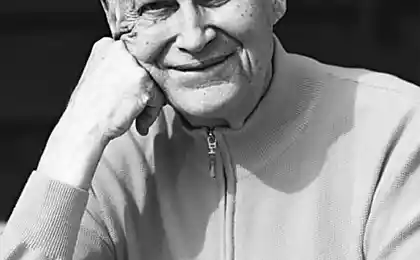635
To be fair: 18 Tips for parents
Tip 1: Do not mark a child as small and therefore enjoy special privileges in the family. Much more important for him to feel their equality in the family team.

Tip 2. Do not put the child in a special position: the first piece, the best place contribute to the education of the selfish inclinations.
Tip 3: To be able to deny the child firmly and decisively, if you notice that his desire is greater than the possibility of family or violates the convenience of the senior.
Tip 4. Teach the child to take the interests and desires of seniors, not to disturb their work and leisure.
Tip 5. Treat your child how to ravnoppavnomu member of the family collective, respectful (to listen to his opinion, provide him with the opportunity to participate in family councils, and so on. N.).
Tip 6. Secure the child a permanent responsibilities and relentlessly monitor their implementation. Teach him to take care of their elders, to exercise it, giving specific instructions ( "Ask how it feels to the patient, not whether or not it that?" "Spend the grandmother to the elevator, open the door for her," "Play softly - adults relax" "this half eat itself, and this to his sister," and so on. n.).
Tip 7. Teach the child to be sociable, friendly with adults and peers; learning to share toys, treats with other children and seniors.
Tip 8. look at your child - whether he has the qualities of the public (whether on their own accord to give up a comfortable place to any of the adults there can take care of older family members without your reminders obschesemeynye share joys and sorrows, and others.) .
9. Order the Council to respect the child himself is not possible; respect is won by all manner of life, attitude to people, to work, to social position.
Council 10. To tell the child about the family, their public affairs; if there are rewards in family members to tell what they received.
Tip 11. Give your child the opportunity to take care of their elders, to practice good deeds.
Council 12. The child has a high suggestibility. If he feels that he is trusted, it is considered good, he will try to justify this view (the child gives what is asked from it).
Council 13. Taunt, rude word hurt the child's soul, trample on their dignity.
Council 14. Children who have a developed sense of self-esteem, respond well to the parent word, they are more susceptible to pedagogical influences.
Council 15. Observe the sequence requirements for the child. Before you ask him, it is necessary to be sure of the validity and reasonableness of their demands; not to cancel the decision, it is permissible only in exceptional cases.
16. Council Regulation applicable to the child, must be respected by all members of the family if the child sees the parents can, and he can not, can not achieve the desired results in education.
Council 17. The choice of ways to influence the child to always start with soft measures, and only in exceptional cases, to resort to stronger stimuli.
Council 18. A clear and substantive mode of life of a child - the main condition for the formation of positive sustainable habits to prevent the occurrence of moods.

Tip 2. Do not put the child in a special position: the first piece, the best place contribute to the education of the selfish inclinations.
Tip 3: To be able to deny the child firmly and decisively, if you notice that his desire is greater than the possibility of family or violates the convenience of the senior.
Tip 4. Teach the child to take the interests and desires of seniors, not to disturb their work and leisure.
Tip 5. Treat your child how to ravnoppavnomu member of the family collective, respectful (to listen to his opinion, provide him with the opportunity to participate in family councils, and so on. N.).
Tip 6. Secure the child a permanent responsibilities and relentlessly monitor their implementation. Teach him to take care of their elders, to exercise it, giving specific instructions ( "Ask how it feels to the patient, not whether or not it that?" "Spend the grandmother to the elevator, open the door for her," "Play softly - adults relax" "this half eat itself, and this to his sister," and so on. n.).
Tip 7. Teach the child to be sociable, friendly with adults and peers; learning to share toys, treats with other children and seniors.
Tip 8. look at your child - whether he has the qualities of the public (whether on their own accord to give up a comfortable place to any of the adults there can take care of older family members without your reminders obschesemeynye share joys and sorrows, and others.) .
9. Order the Council to respect the child himself is not possible; respect is won by all manner of life, attitude to people, to work, to social position.
Council 10. To tell the child about the family, their public affairs; if there are rewards in family members to tell what they received.
Tip 11. Give your child the opportunity to take care of their elders, to practice good deeds.
Council 12. The child has a high suggestibility. If he feels that he is trusted, it is considered good, he will try to justify this view (the child gives what is asked from it).
Council 13. Taunt, rude word hurt the child's soul, trample on their dignity.
Council 14. Children who have a developed sense of self-esteem, respond well to the parent word, they are more susceptible to pedagogical influences.
Council 15. Observe the sequence requirements for the child. Before you ask him, it is necessary to be sure of the validity and reasonableness of their demands; not to cancel the decision, it is permissible only in exceptional cases.
16. Council Regulation applicable to the child, must be respected by all members of the family if the child sees the parents can, and he can not, can not achieve the desired results in education.
Council 17. The choice of ways to influence the child to always start with soft measures, and only in exceptional cases, to resort to stronger stimuli.
Council 18. A clear and substantive mode of life of a child - the main condition for the formation of positive sustainable habits to prevent the occurrence of moods.
Diseases: us returns that we've created energy
Rejuvenating stimulating massage the face, neck and head
























